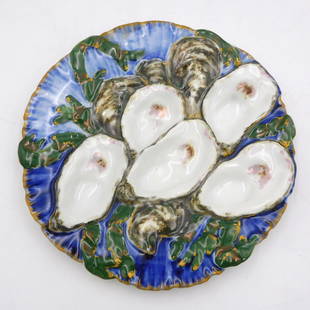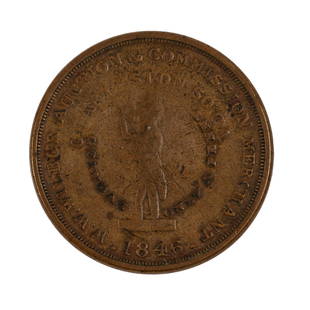
Newton Ponders Whether “God or any part of him was born of the Virgin” - He Considered
Similar Sale History
View More Items in Historical Memorabilia
Related Historical Memorabilia
More Items in Historical Memorabilia
View MoreRecommended Collectibles
View More





Item Details
Description
Newton Ponders Whether “God or any part of him was born of the Virgin” - He Considered the Universe to Be a Divine Machine & His Science Was Integrally Tied to Religion
NEWTON, Isaac. Autograph Manuscript, 1p, 7.125" x 3.375", n.p., n.d., but not before 1698. Expected light age toning, else fine condition.
Rough Transcription from The Newton Papers: “Four years after the writing of these letters / vizt A.C. 351 / the Council of Sirmium in [anathematizing his erroneous] condemning Photinus & [anathematizing] declaring against his erroneous opinionion [sic], anathematized those who should say that the innascible God or any part of him was born of the Virgin or that the substance of God is contracted or dilated, or [that] or [sic] by dilatation made the son, or that \á¼Î½Î´Î¹Î¬Î¸ÎµÏ„ος οá½Îº Ï€ÏοφοÏικὸς λόγος á¼Î½Î´Î¹Î¬Î¸ÎµÏ„ος the inherent or prolatitious word of God is the Son of God. And the decrees of this Council being universally received without opposition [soon] put an end to the opinions that the son [?] was the λόγος á¼Î½Î´Î¹Î¬Î¸ÎµÏ„ος or Ï€ÏοφοÏικὸς of the father or any part of him & some time before the creation of the world, came out of the father him either as an emitted or a projected or dilated part of him, or an emitted…as a word voice or power…emitted or spoken or emitted. For the most zealous of those who contended for the coeternity & coequality of the Son to the father, submis submitted to the decrees of this Council even Hilary as you may see in his comment on the definitions of faith made by this Council, & Athanasius himself as you may see in [?] in his Exposition of Faith, Athanasius himself as you may see by a Creed of his written the [tomes] after the reign of Constantius as I gather by his calling the father son & holy ghost three undivided hypostases, & usually printed with his works. For in this Creed he Exposition he saith of the son: Credo in unum unigenitum Verbum, Sapientiam, Filium, ex Patre sine initio et ab æternitate genitum & [sine] λόγον δὲ οὠπÏοφοÏικὸν, οá½Îº á¼Î½Î´Î¹Î¬Î¸ÎµÏ„ον, οá½Îº ἀπό᾽ÏÏ῾οιαν τοῦ τεγείου Verbum οὠτμῆσιν τῆς απαθοῦς φÏσεως οὔτε Ï€Ïοβοβ|λ|ὴν Verbum vero non prolatitium, non insitum, non effluxum perfecti, nec sectionem impassibilis naturæ…”
Sir Isaac Newton (1642-1726/27) was certainly one of the greatest scientists who ever lived. He laid out the three laws of motion in his extraordinary Principia Mathematica. He discovered the law of universal gravitation, the famous inverse-distance-squared law. He wrote much about light and optics after performing his own original experiments on light. He invented calculus. He rejected the authority of the Greek philosopher Aristotle and promoted experiment-based science. But what is not commonly known about Newton is that he was also a devout Christian who wrote extensively about Christianity. We learn from his writings that he deeply studied the Bible along with writings of early Christian leaders. Notably, Newton concluded that the dogma of a Triune god was false doctrine, an apostasy that occurred early in the history of the Christian church, and therefore refused ordination in the Anglican Church, a most unpopular decision that almost cost him his position at Cambridge University. Newton, however, believed that a restoration of the Lord’s church would come at some future time. Although none of Newton’s religious writings were published during his lifetime, his book Observations upon the Prophecies of Daniel and the Apocalypse of St. John was published posthumously in 1733.
The question of God’s relation to Christ was a central concern of Newton’s life, and he sought its answer not only for religious reasons. but also, for reasons of physics. In the Principia Mathematica, Newton explicitly affirms that God Almighty holds dominion over Nature and exceeds Nature in power and authority. The question of whether “God or any part of Him was born of the Virgin” can be understood as a symbolic way of asking whether God has any relation to pure matter.
Though Newton is remembered for his monumental contributions to physics, calculus, and optics, he considered himself above all a student of the Bible. In this manuscript, Newton writes about the fourth century debate: whether God the Father and Christ the Son were “one in substance”. A similar but larger manuscript sold at Bonhams, pre-COVID and before the recent uptick in science, for $106,325.
Provenance: From the second half of a two-page manuscript on Church history, the corruption of the faith and the Nicene Council. The manuscript originally sold to Emmanuel Fabius at the 1936 Sotheby's sale of the Portsmouth Newton archive. The Karpeles Museum, Santa Barbara, California owns a different portion of this manuscript (SL255.2). A marginal reference to a 1699 Paris edition of Athanasius's works published (according to Newton) in 1699 gives a terminus a quo for the date of this autograph. However, it is almost certainly the case that the edition Newton had in mind is Bernard de Montfaucon’s edition of Athanasius, published in Paris in 1698.
This item comes with a Certificate from John Reznikoff, a premier authenticator for both major 3rd party authentication services, PSA and JSA (James Spence Authentications), as well as numerous auction houses.
WE PROVIDE IN-HOUSE SHIPPING WORLDWIDE!
Buyer's Premium
- 25%
Newton Ponders Whether “God or any part of him was born of the Virgin” - He Considered
Shipping & Pickup Options
Item located in Wilton, CT, usPayment

Auction Curated By










































































![George Washington Signed Discharge: Partly printed discharge document signed by George Washington, as Commander in Chief of the Armies of the United States. Newburgh, [New York], 4 January 1783. 1 page, ## x ## in. Undersigned by Washin](https://p1.liveauctioneers.com/7226/322253/173251475_1_x.jpg?height=310&quality=70&version=1710004847)
![[Ambrotype] Texas Confederate Soldier: Sixth plate ambrotype. Full leatherette case. Portrait of a possible Texas Confederate soldier. A silver star device was used to pin up the brim of his light-toned headgear, a look often seen in image](https://p1.liveauctioneers.com/7226/322253/173251509_1_x.jpg?height=310&quality=70&version=1710004847)





